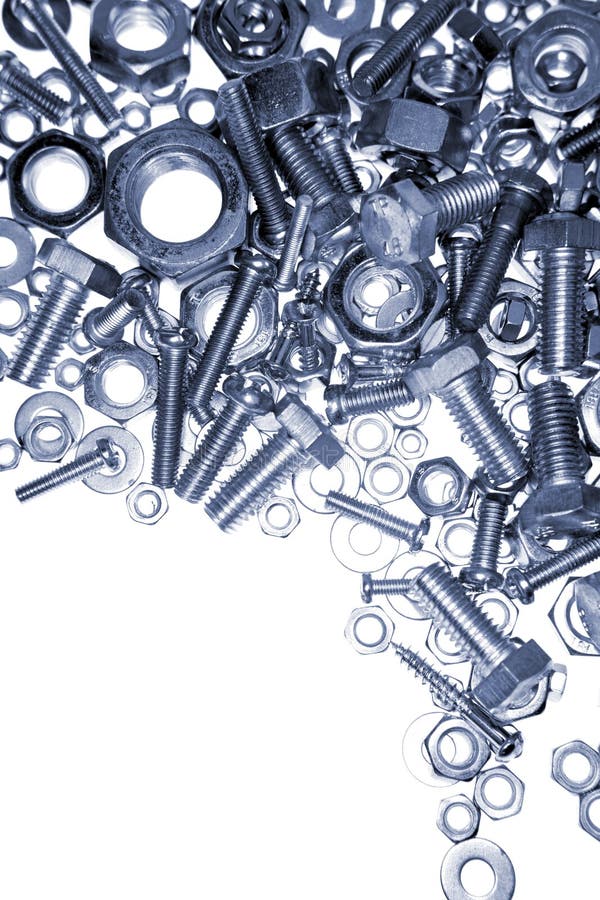DIY Projects Which Rely on Fasteners plus Nuts
In the sphere of home improvement tasks, fasteners play a crucial role that often goes unnoticed yet is essential to the stability of all projects. Whether you are building a new bookshelf, crafting home decor, or engaging in a substantial building task, grasping the multiple categories of nuts and bolts can significantly impact the outcome. This piece acts as an all-encompassing resource to help you sort through the countless choices at hand, ensuring that you choose the appropriate fasteners that fit your particular criteria.
Starting with hex bolts to carriage bolts, and regular nuts to unique varieties, the variety can be overwhelming. https://click4r.com/posts/g/20662960/from-woodshops-to-workshops-the-versatility-of-nuts-and-bolts has its own unique application and functional traits that make it suitable for various materials and scenarios. By examining the essentials of nuts and bolts, exploring their use cases, and examining the various materials and coatings available, we aim to equip you with the knowledge needed to select the perfect fastener on your upcoming DIY project. Therefore, whether you are an expert in DIY or a beginner, prepare to improve your skills and trust in effectively fastening your projects.
Variations of Nuts and Bolts
As you starting a DIY project, understanding the multiple types of nuts and screws is important for choosing the suitable hardware for the job. Screws are typically identified by their design and purpose, with common types comprising hex bolts, carriage bolts, and lag screws. Hex bolts are preferred for their flexibility and durability, while carriage bolts are perfect for applications requiring a clean finish and easy installation. Lag screws, on the other hand, are purposefully designed for heavy-duty fastening in wood due to their big, rough spirals.
Fasteners serve as the counterpart to screws, providing a tight fastening system. There are a variety of types of fasteners, with hex nuts being the most widely used in pairing with regular screws. Other types include locking fasteners, which feature a mechanism that avoids becoming loose due to vibration, and flanged fasteners, which have a built-in disc for better weight distribution. Choosing the right fastener is essential, as it needs to match both the bolt size and the mechanical demands of the project.
In addition to standard nuts and bolts, specialty fasteners are offered for particular uses. For example, nylon lock nuts offer added safety by preventing shift, while expansion bolts are beneficial in masonry work where greater holding strength is needed. Understanding these differences and their uses will enhance your DIY efforts, guaranteeing that your tasks are safe and long-lasting.
Substances and Coatings
When selecting fasteners and screws for your endeavor, the material is essential for ensuring durability and appropriateness for your specific needs. Steel is the most common material used, recognized for its strength and versatility. It comes in various types, which vary in tensile strength and resistance to corrosion. Stainless metal, on the other hand, offers superb resistance to oxidation and corrosion, making it perfect for outdoor applications and environments where moisture is a factor. Alternative materials like bronze and aluminum are also available, each providing unique benefits: bronze is often employed for its visual attractiveness and resistance to corrosion, while aluminum is favored in specialized applications due to its lightweight and remarkably high weight-to-strength ratio.
Coatings also play a important role in the performance of fasteners and bolts. Various coatings can improve corrosion resistance, which is crucial for fasteners exposed to the environment. Zinc coating is a common option, providing a defensive layer that prevents oxidation and deterioration. Galvanization, which involves a heavier layer of zinc, provides even greater protection for industrial applications. Additionally, specialty coatings such as black oxide and ceramic can improve both appearance and resistance against wear and tear. Knowing these coatings can assist you select the right hardware for your setting and the longevity of your project.
Finally, it is essential to consider how the selected materials and coatings interact with each other. For instance, using different metals can sometimes lead to electrochemical corrosion, especially in external conditions. Therefore, ensuring compatibility between fasteners, bolts, and the materials they will be fixed to is crucial. This knowledge will not only improve the functionality of your hardware but also guarantee the success and security of your DIY projects.
Comparison Guides and Comparative Analysis
When picking nuts and bolts for your project, it is crucial to grasp the differences between metric and imperial fasteners. Metric fasteners, which are gauged in millimeters, provide greater precision but may not necessarily be suitable with tools designed for imperial measurements, that are based on inches. Understanding what this hyperlink requires can help you avoid time and frustration. Always check the specifications of the components you are working with to ensure a perfect fit.
Measuring nuts and bolts correctly is essential to ensure that you purchase the correct size. Utilize calipers for precision and consult sizing charts that correspond to threading standards. Standard measurements include width, length, and thread pitch, which can greatly affect the performance of the fasteners in the project. Getting these measurements accurately can help avoid costly mistakes and ensure that your assembly holds firm.

When search for quality fasteners, consider durability, material, and coating. High-grade steel, stainless steel, and corrosion-resistant coatings like zinc-coating or galvanized finishes can significantly extend the life of your nuts and bolts, especially in harsh environments. Always look for reputable brands and read reviews to gauge the reliability of the fasteners you intend to purchase. A well-informed choice will enhance the security and longevity of the DIY projects.